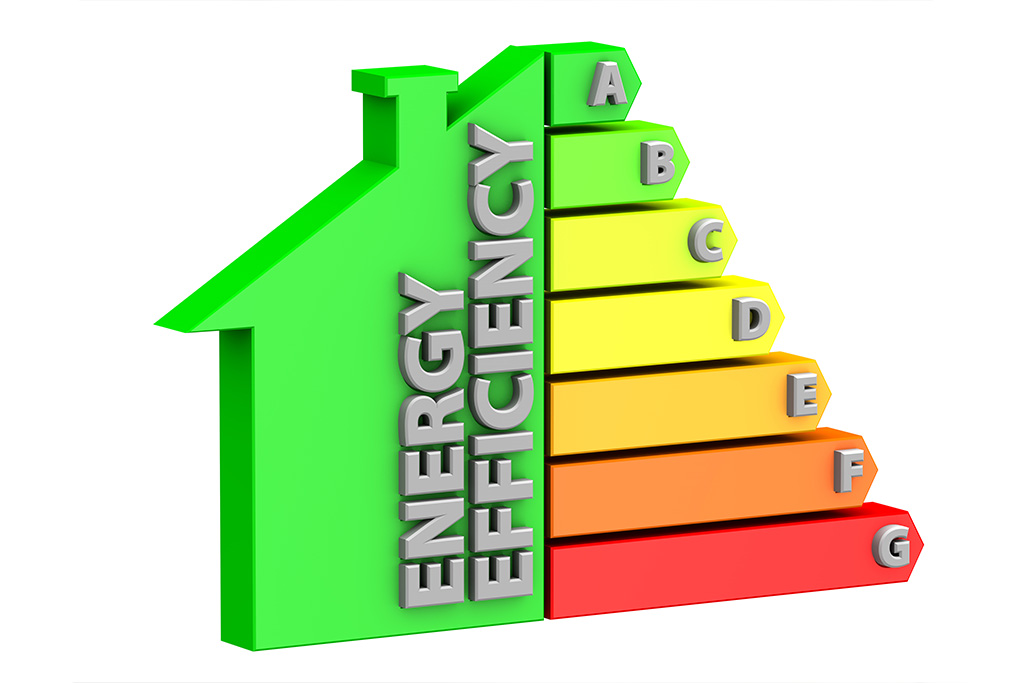EPCs

Information about the Certification
Key Points
- An EPC is valid for 10 years and can be reused as many times as required within that period unless major renovation or new construction takes place.
- The regulations require an EPC to be commissioned, if there is no valid EPC for that building, before a building is put on the market.
- Before marketing a building for sale or rent, a person acting on behalf of the seller or landlord (for example, the estate or letting agent) must be satisfied that an EPC has been commissioned for that building.
- An EPC must be produced by an accredited energy assessor
- All advertisements in the commercial media must clearly show the energy rating of the building (where this is available).
- The regulations require an EPC to be given free of charge to the person who becomes the buyer or tenant of the building.
- An EPC shows the energy efficiency rating of a building (Rainbow colour).
- The EPC includes recommendations on how to improve energy efficiency.
1. Energy Performance Certificate
The EPC might seem like an unwelcome cost for many property sellers and landlords, however there are some key benefits to getting your property an EPC. These include:
- Helping prospective tenants or buyers to make an informed choice.
- Providing guidance on increasing a property’s efficiency.
- Reducing the cost of bills by identifying improvements.
- Helping to make the property more appealing to tenants or buyers by making it more efficient.
A sample of an EPC for both dwelling or non-dwelling can be viewed as follows:
- Dwellings – 02/01/2009
- All other buildings – 01/06/2009
A person or agent acting on behalf of such person who commissions the design of a new dwelling or building has to obtain an EPC based on the design rating of the building and in the form prescribed in the Regulations by the date that an application for a full development permission is submitted to the Planning Authority.
- Dwellings – 02/01/2009
- All other buildings – 01/06/2009
A person or agent acting on behalf of such person who offers for sale or letting a building, shall show the EPC or a copy thereof to the prospective buyer/tenant and hand it over to the buyer/tenant, at the latest, before the date of entering the promise of sale or rent agreement. This shall be based on the design rating of the building if the building is not yet constructed and finished, or the asset rating if the building is already constructed and finished.
The registration fee is € 75.00 for both dwelling and non-dwelling EPC, excluding assessors’ professional fees.
As from 02/09/2009, all public entities that are occupying a building and are providing public services to a large number of persons are to ensure that an EPC based on the asset rating of the building is commissioned and displayed at all times in a prominent place clearly visible to the public. The EPC has to be on display by not later than the 02/01/2010.
All new public buildings are to have an EPC not later than 12months after connection to the electric power grid.
The EPC is to be reviewed after the first ten years.
To be valid, the EPC has to be obtained from an assessor and registered with the Building and Construction Authority before being issued to the person who commissions it.
For a full list of registered dwellings assessors please click here.
For a full list of non-dwellings assessors, click here.
Once an EPC is registered, it shall be valid for the following timeframes (unless major renovations or alterations to the building/installation have taken place):
- Dwelling – 10 years
- Building – 10 years
- Public Building – 10 years
L.N. 47 of 2018 mandates regular inspection of the accessible parts of systems used for heating buildings with boilers of an effective rated output for space heating purposes of more than 20kW. Such inspection shall include an assessment of the boiler efficiency and the boiler sizing compared with the heating requirements of the building.
The frequency of inspections for heating systems, with boilers for space heating purposes, are as follows:
- At least every two years for boilers with an effective rated output of more than 100kW fired by fuels other than gas;
- At least every four years for gas-fired boilers with an effective rated output of more than 100kW;
- At least every four years for all other boilers with an effective rated output of more than 20kW up to 100kW.
Owners of heating systems have the responsibility to check if the requirement of regular inspections applies to their systems.
Click here to access a flowchart for help.
Owners are responsible to commission a Registered Heating Systems Inspector to carry out these regular inspections.
Click here for the full list of Registered Heating Systems Inspectors.
An inspection report shall be issued after each inspection of a heating system. The inspection report shall contain the result of the inspection performed and shall include recommendations for the cost-effective improvement of the energy performance of the inspected system.
L.N. 47 of 2018 mandates regular inspection of air conditioning systems with an effective rated output of more than 12 kW. Such inspection shall include an assessment of the air-conditioning efficiency and the sizing compared to the cooling requirements of the building.
The frequency of inspections for air-conditioning systems is as follows:
- Every ten (10) years for AC systems having an effective rated output between 12 kW and 100 kW
- Every five (5) years for AC systems having an effective rated output greater than 100kW
Owners of air-conditioning systems have the responsibility to check if the requirement of regular inspections applies to their system/s.
Owners are responsible to commission a Registered Air-conditioning Systems Inspector to carry out these regular inspections.
Click here for the full list of Registered Air-conditioning Systems Inspectors.
Download Inspection Report Template
An inspection report shall be issued after each inspection of an air-conditioning system. The inspection report shall contain the result of the inspection performed and shall include recommendations for the cost-effective improvement of the energy performance of the inspected system/s.

